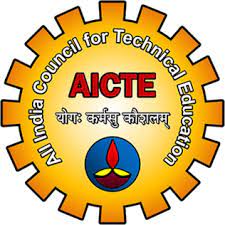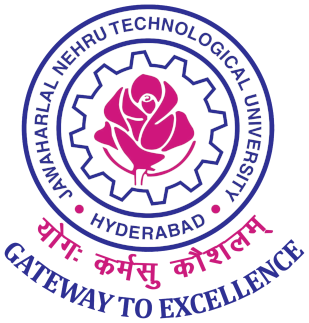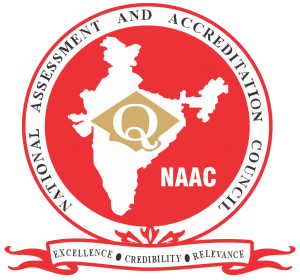Mechanical Engineering
ABOUT DEPARTMENT:
The Department of Mechanical Engineering at the KHAMMAM INSTITUTE OF TECHNOLOGY & SCIENCES was formed in the year 2010 and provides an outstanding Practical environment complemented by excellence in teaching. The Department has qualified and experienced staff and well equipped laboratories.
Mechanical engineering is the study, design, development, construction, and testing of mechanical and thermal sensors and devices, including tools, engines, and machines. Mechanical engineering careers center on creating technologies to meet a wide range of human needs.
DEPARTMENT VISION:
We, at the Department of Mechanical Engineering, Khammam Institute of Technology and Sciences shall strive hard to impart knowledge and state-of-the-art training to our students and expose them to broad areas of Mechanical Engineering, namely Design, Manufacturing, Energy, Thermal Sciences and currently related interdisciplinary areas, so that they can later practice their profession at home or abroad keeping in mind the needs and concern of the society they represent, safeguarding values, ethics and be instrumental in bringing about an overall technological development.
DEPARTMENT MISSION:
1. To deliver knowledge in Mechanical Engineering with high educational standards so that the outgoing students are employable and globally competitive.
2. To produce graduate with core competency as well as relevant software skills and social responsibility.
3. To be dynamic in imparting knowledge to students depending upon the changing national and International needs.
PROGRAM OUTCOMES [PO’s]
- Engineering Knowledge: an ability to Apply the knowledge of mathematics, science, engineering fundamentals, and an engineering specialization to the solution of complex engineering problems.
- Problem Analysis: Ability to Identify, formulate, research literature, and analyze complex engineering problems reaching substantiated conclusions using first principles of mathematics, natural sciences, and engineering sciences.
- Design/development of Solutions: an ability to Design solutions for complex engineering problems and design system components or processes that meet the specified needs with appropriate consideration for the public health and safety, and the cultural, societal, and environmental considerations.
- Conduct Investigations of Complex Problems: an ability to use research-based knowledge and research methods including design of experiments, analysis and interpretation of data, and synthesis of the information to provide valid conclusions.
- Modern Tool usage: an ability to create, select, and apply appropriate techniques, resources, and modern engineering and IT tools including prediction and modelling to complex engineering activities with an understanding of the limitations.
- The Engineer and Society: an ability to apply reasoning informed by the contextual knowledge to assess societal, health, safety, legal and cultural issues and the consequent responsibilities relevant to the professional engineering practice.
- Environment and Sustainability: an ability to understand the impact of the professional engineering solutions in societal and environmental contexts, and demonstrate the knowledge of, and need for sustainable development.
- Ethics: Apply ethical principles and commit to professional ethics and responsibilities and norms of the engineering practice.
- Individual and Team Work: an ability to function effectively as an individual, and as a member or leader in diverse teams, and in multidisciplinary settings.
- Communication: an ability to communicate effectively on complex engineering activities with the engineering community and with society at large, such as, being able to comprehend and write effective reports and design documentation, make effective presentations, and give and receive clear instructions.
- Project Management and Finance: an ability to demonstrate knowledge and understanding of the engineering, management principles and contemporary issues and apply these to one’s own work, as a member and leader in a team, to manage projects and in multidisciplinary environments.
- Life-long Learning: ability to recognize the need for, and have the preparation and ability to engage in independent and life-long learning in the broadest context of technological change.
PROGRAMME OUTCOMES (POs)
PO1 : Engineering knowledge: Apply the knowledge of mathematics, science, engineering fundamentals, and an engineering specialization to the solution of complex engineering problems.
PO2 : Problem analysis: Identify, formulate, review research literature, and analyze complex engineering problems reaching substantiated conclusions using first principles of mathematics, natural sciences, and engineering sciences.
PO3 : Design/development of solutions: Design solutions for complex engineering problems and design system components or processes that meet the specified needs with appropriate consideration for the public health and safety, and the cultural, societal, and environmental considerations.
PO4 : Conduct investigations of complex problems: Use research-based knowledge and research methods including design of experiments, analysis and interpretation of data, and synthesis of the information to provide valid conclusions.
PO5 : Modern tool usage: Create, select, and apply appropriate techniques, resources, and modern engineering and IT tools including prediction and modeling to complex
engineering activities with an understanding of the limitations.
PO6: The engineer and society: Apply reasoning informed by the contextual knowledge to assess societal, health, safety, legal and cultural issues and the consequent responsibilities relevant to the professional engineering practice.
PO7 : Environment and sustainability: Understand the impact of the professional engineering solutions in societal and environmental contexts, and demonstrate the knowledge of, and need for sustainable development.
PO8 : Ethics: Apply ethical principles and commit to professional ethics and responsibilities and norms of the engineering practice.
PO9 : Individual and team work: Function effectively as an individual, and as a member or leader in diverse teams, and in multidisciplinary settings.
PO10 : Communication: Communicate effectively on complex engineering activities with the engineering community and with society at large, such as, being able to comprehend and write effective reports and design documentation, make effective presentations, and give and receive clear instructions.
PO11. Project management and finance: Demonstrate knowledge and understanding of the engineering and management principles and apply these to one’s own work, as a member and leader in a team, to manage projects and in multidisciplinary environments.
PO12 : Life-long learning: Recognize the need for, and have the preparation and ability to engage in independent and life-long learning in the broadest context of technological change.
PROGRAMME SPECIFIC OUTCOMES (PSOs)
PSO1 : Analyze and design of Thermal systems and processes for energy conservation and sustainability.
PSO2 : Provide design, synthesis and optimum solutions to mechanical components.
PSO3 : Differentiate between different manufacturing processes and apply them along with principles of management science, planning and quality control for the
production of different components.
LIST OF LABORATORIES:
I YEAR I SEMESTER
- Engineering Workshop
- Elements of Mechanical Engineering
- Applied Physics Laboratory
- English Language and Communication Skills Laboratory
- C Programming and Data Structures Laboratory
I YEAR II SEMESTER
- Python Programming Laboratory
- Engineering Chemistry Laboratory
- Fuels & Lubricants Laboratory
II YEAR I SEMESTER
- Production Technology Laboratory
- Material Science & Mechanics of Solids Laboratory
- Computer Aided Machine Drawing
II YEAR II SEMESTER
- Fluid Mechanics & Hydraulic Machines Laboratory
- Instrumentation and Control Systems Laboratory
- Real-time Research Project/ Field-Based Project
III YEAR I SEMESTER
- Thermal Engineering Laboratory
- Metrology & Machine Tools Laboratory
- Kinematics & Dynamics Laboratory
III YEAR II SEMESTER
- Computer Aided Engineering Laboratory
- Advanced English Communication Skills Laboratory
- Industry Oriented Mini Project/ Internship
Our Vision
We, at the Department of Mechanical Engineering, Khammam Institute of Technology and Sciences shall strive hard to impart knowledge and state-of-the-art training to our students and expose them to broad areas of Mechanical Engineering, namely Design, Manufacturing, Energy, Thermal Sciences and currently related interdisciplinary areas, so that they can later practice their profession at home or abroad keeping in min
Mission
1. To deliver knowledge in Mechanical Engineering with high educational standards so that the outgoing students are employable and globally competitive.
2. To produce graduate with core competency as well as relevant software skills and social responsibility.
3. To be dynamic in imparting knowledge to students depending upon the changing national and International needs.
Faculty
| Faculty Id | Faculty Name | Faculty Designation |
|---|






.jpg)

